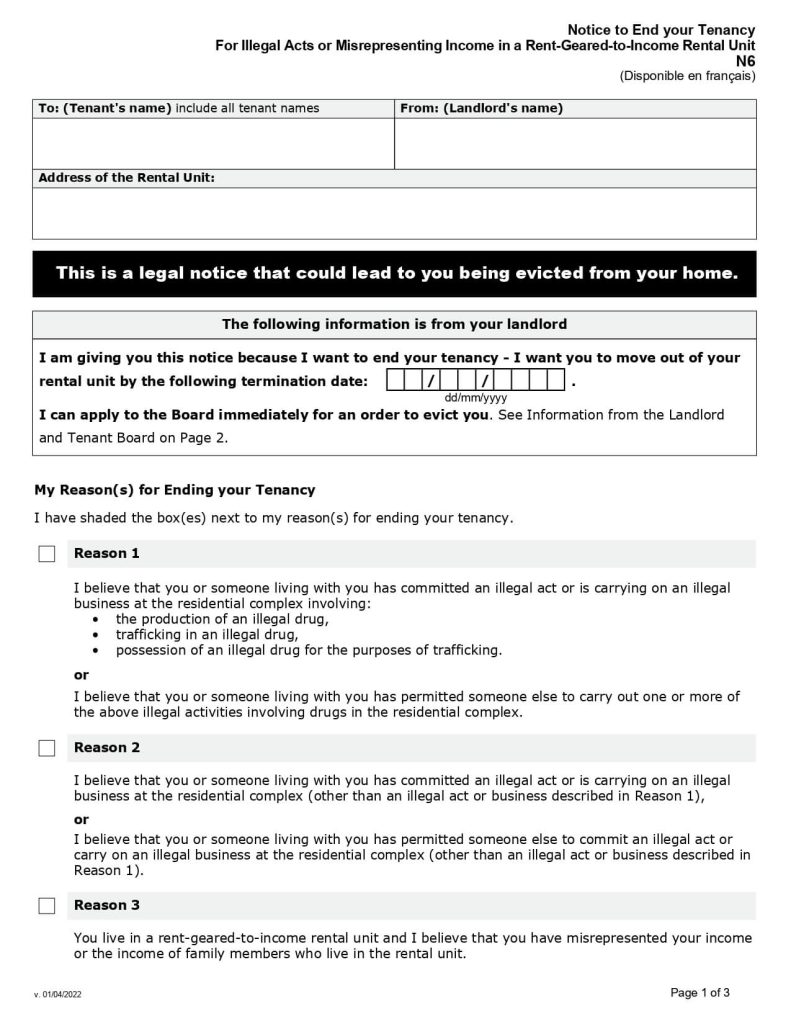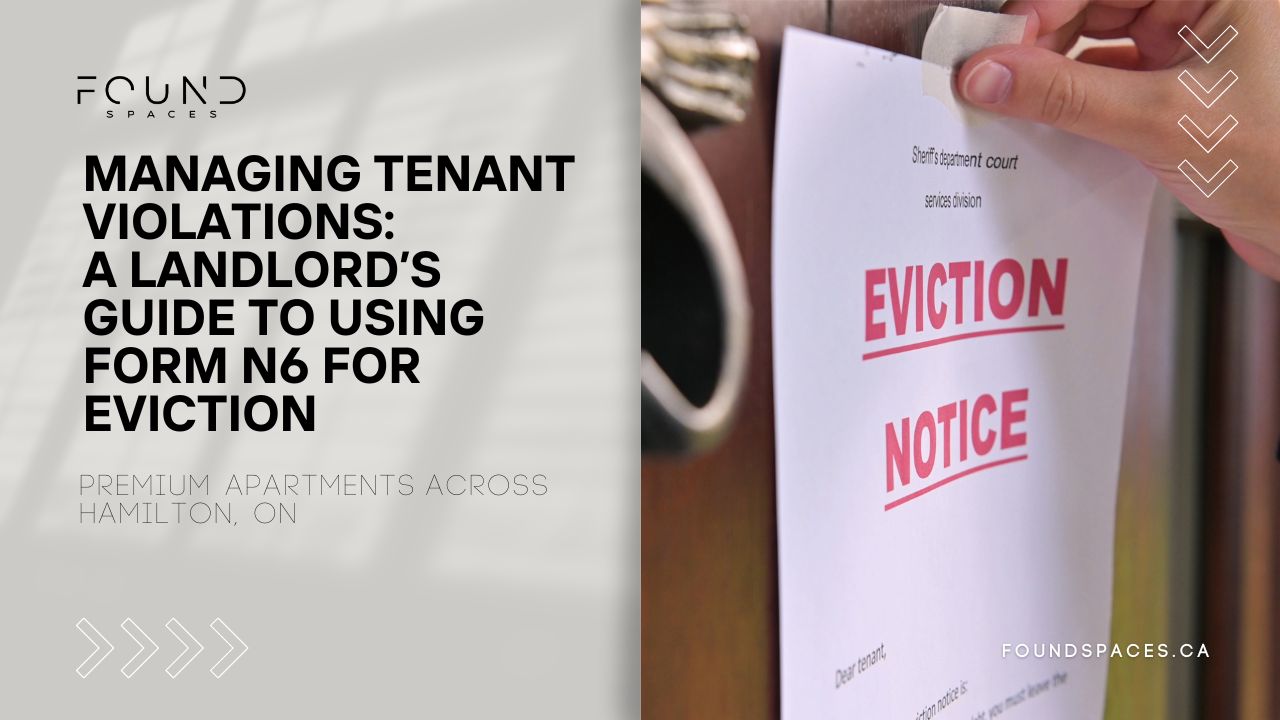As a landlord, dealing with tenant violations can be a challenging aspect of property management. Whether it’s illegal activities or misrepresentation of income in rent-geared-to-income housing, understanding how to use Form N6 effectively is crucial. This blog post provides an in-depth look at using Form N6 for evicting tenants for specific violations.

Reasons for Issuing Form N6
Form N6 is used under the following circumstances:
- Illegal Acts or Businesses: This includes the production, trafficking, or possession of illegal drugs for trafficking purposes in the rental complex.
- Other Illegal Activities: Any other illegal act or business conducted in the rental complex.
- Income Misrepresentation: Specifically in rent-geared-to-income housing, if a tenant has misrepresented their income or that of family members living in the unit.

Alternatives to Eviction:
- For rent recovery without eviction, landlords can use Form L9.
- To evict a tenant for non-payment of additional rent owed, Form N4 can be served.
Completing and Serving Form N6:
- Ensure the form is filled out correctly, including tenant and landlord names, and the address of the rental unit.
- The termination date depends on the reason for eviction and whether it’s the first or second notice within six months.
- For Reason 1, the termination date is at least 10 days after serving the notice. For Reasons 2 and 3, it’s at least 20 days for the first notice and 14 days for the second.
- Detailed descriptions of the reasons for eviction are necessary, including dates, times, and specifics of the incidents.
Delivering the Notice:
- The notice can be delivered directly to the tenant, left in their mailbox, placed under their door, sent by fax, courier, or mail.
- Posting the notice on the tenant’s door is not a permissible method of delivery.
Next Steps After Serving Notice:
- Keeping a copy of the notice is important for records.
- Landlords can apply to the Landlord and Tenant Board (LTB) for an order to terminate the tenancy immediately after serving the notice.
- The application requires Form L2, a copy of the served Form N6, and a Certificate of Service.
Understanding and correctly using Form N6 is essential for landlords facing serious tenant violations. It’s a powerful tool but requires attention to detail and adherence to legal procedures. As always, seeking professional advice in complex eviction cases is recommended.
A Comprehensive Guide to Rent Increases: Understanding the Different Forms for Landlords




